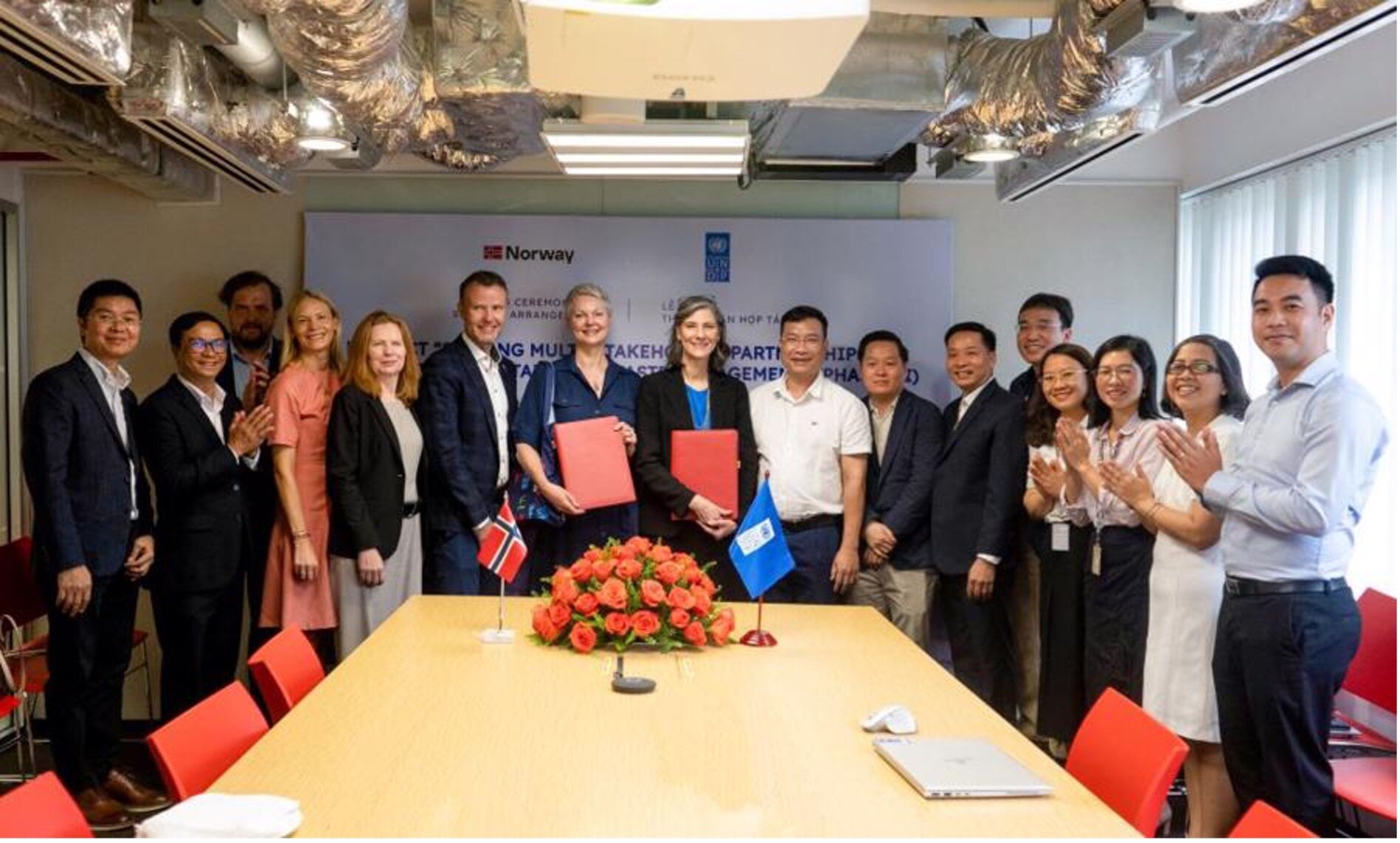On April 22, the United Nations Development Programme (UNDP) in Vietnam and the Norwegian Embassy signed a new cooperation agreement for the "Scaling Multi-Stakeholder Partnerships for Circular and Sustainable Waste Management" project.
The project aims to assist Vietnam in addressing the challenges of managing municipal solid waste, with two leading solutions: building a solid waste management model through promoting waste segregation at the source, establishing a material recovery facility combined with co-processing non-recyclable waste in cement kilns, and testing a deposit refund program for plastic packaging.
Building on close cooperation since 2019, UNDP and Norway have implemented several initiatives in Quang Ninh, Da Nang, Binh Dinh, Binh Thuan and Binh Duong to pilot solid waste management models, strengthen policy frameworks, improve waste collection, segregation, and promote recycling.

Research from the Ocean Plastic Waste to Circular Economy (OPTOCE) project on co-processing in cement kilns, conducted by the Norwegian Institute for Science and Technology (SINTEF), and the pre-feasibility study of the Deposit Refund Scheme (DRS) conducted by the Norwegian Embassy and its business chamber (Innovation Norway), has provided further evidence to test these models in practice. Based on the practical implementation of pilot models, UNDP and Norway will continue to promote the refinement of legal frameworks, especially policies on Extended Producer Responsibility (EPR) and municipal solid waste management regulations.
This Phase III project will build on the results achieved in Phase I and II, aiming to scale up the solid waste management model with a Material Recovery Facility (MRF) combined with co-processing in cement kilns, which is expected to be implemented in Cam Pha City. Additionally, the project will pilot the Deposit Refund Scheme (DRS) in Phu Quoc City.
At the national level, the project will contribute to policy development, encourage inter-provincial learning, and establish transparent monitoring mechanisms towards a circular economy. Gender and digital technology factors will be integrated throughout the project to ensure comprehensive and inclusive solutions.
Although Vietnam has set a target to reduce the landfill rate to below 30% by 2025, it has not yet achieved the expected results due to inconsistent waste segregation, collection, and recycling, lack of appropriate guidance, and insufficient infrastructure investment.